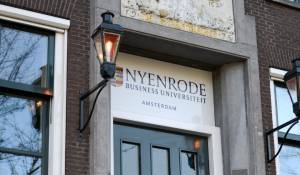James raises a good point about specialised masters. There might be more demand for people with specialised skills than with generic skills - and also think about location.
On the Durham MBA, according to the FT, only 68% have a job three months after graduating. It is harder to find work from schools in small, deindustrialising cities, certainly, and Durham is one of the MBAs without the sort of internships and project work that makes it easy to move into work.
In contrast, the Henley MSc in finance has a 94% in employment (on average, of course, at a lower salary since it's a pre-experience course). The MSc's in finance from business schools like London, HEC, Oxford, IE and Peking graduate onto higher salaries than Durham MBAs - and also have around 95% employment after three months.
But also think about location - and specifically about where growth is in the next few years:
http://www.pwc.co.uk/the-economy/issues/gdpgrowth.jhtml Argentina, China, India, Indonesia, Saudia Arabia and Turkey. The ESSEC masters in advanced finance, taught across Paris and Singapore, could be a useful path into Asia's financial markets.




